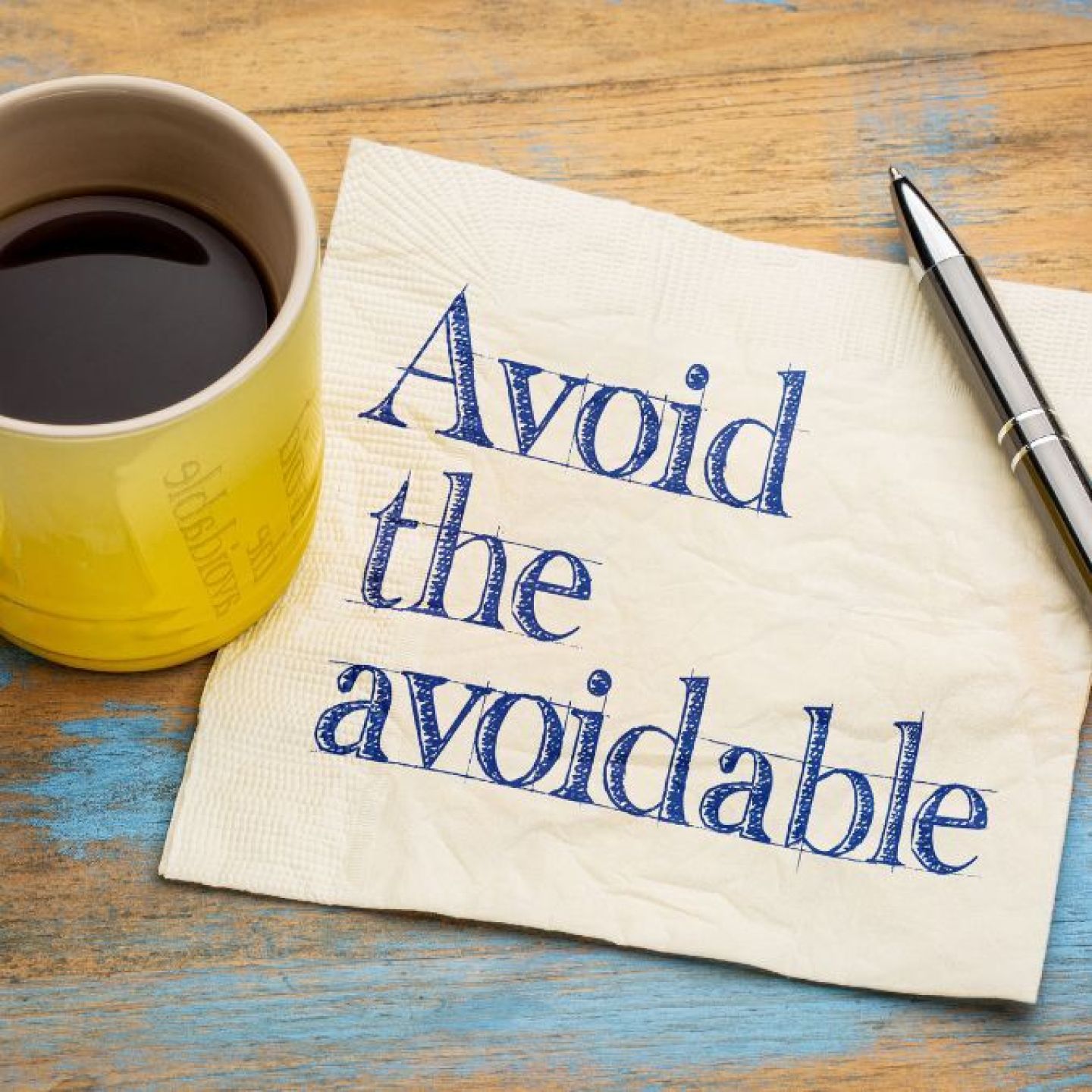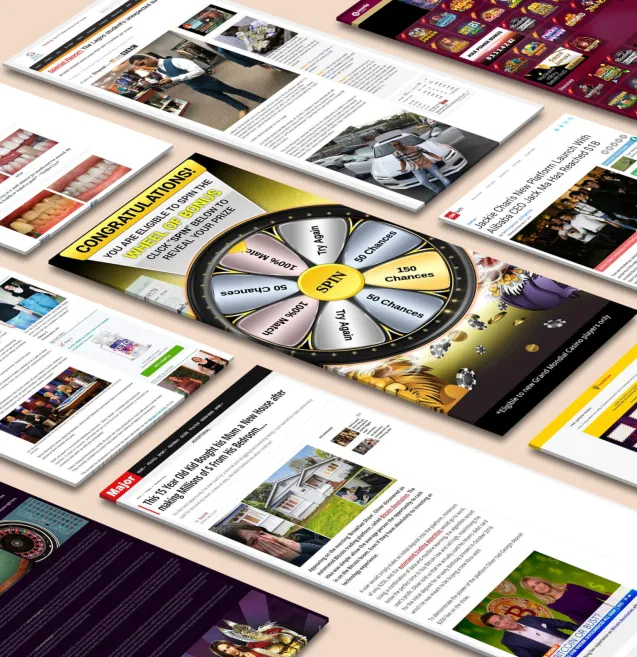
Our spy tools monitor millions of TikTok ads from over 55+ countries. Biggest TikTok Ad Library in E-commerce and Mobile Apps!
Try It FREETikTok, a social media powerhouse, captivates millions with its creative and often viral content. From dance moves to comedic skits, the platform offers endless entertainment. Yet behind the vibrant facade lies a darker trend—dangerous TikTok challenges that can lead to life-threatening situations.
These viral challenges on TikTok have gained notoriety not just for their popularity but also for their potential risks. What starts as seemingly harmless fun can quickly escalate into hazardous stunts that endanger participants' health and safety. Notable examples include the Benadryl Challenge and the Skull Breaker Challenge, both associated with serious injuries and even fatalities.
Key takeaway: While TikTok can be a thrilling source of amusement, it's imperative to stay informed about the potential dangers lurking within certain trends. Awareness and caution are vital to ensuring that your engagement with this digital sensation remains both enjoyable and safe.
TikTok challenges are a form of user-generated content where participants perform specific tasks or routines, often set to music, and then share their videos with the platform's vast audience. These challenges thrive on creativity and community participation, making them highly engaging. They frequently go viral due to TikTok’s algorithm that prioritizes popular content, encouraging users to join in for fun, fame, or both.
The appeal of these challenges lies in their simplicity and accessibility—anyone with a smartphone can participate. They offer a sense of belonging and identity within the TikTok community as users band together to execute trendy moves or stunts. The Renegade Challenge is a prime illustration, featuring a dynamic dance routine created by Jalaiah Harmon that captivated millions worldwide. Similarly, the Blinding Lights Challenge saw groups performing coordinated dances to The Weeknd's hit song, showcasing camaraderie and humor.
While these challenges foster creativity and connection, they also present risks. As trends escalate in complexity or danger to capture attention, users may unwittingly expose themselves to harm. It is crucial to discern between harmless fun and potentially hazardous activities when engaging with these viral phenomena.
Participating in TikTok challenges can be a thrilling experience, but the excitement often masks the health risks that come with some of these viral trends. Individuals may unknowingly put themselves at risk of severe injuries or health complications by engaging in hazardous challenges.
The Benadryl Challenge encourages users to consume excessive doses of the over-the-counter drug to induce hallucinations. This trend has led to serious consequences like seizures, rapid heart rate, and even death. In Oklahoma, a teenager tragically succumbed to cardiac arrest after participating in this challenge, prompting warnings from the FDA.
The Skull Breaker Challenge involves tricking participants into jumping and then sweeping their legs out from under them, causing dangerous falls that result in head injuries and spinal trauma. Numerous cases have surfaced where victims required hospitalization due to the severity of their injuries.
Another alarming trend is the Milk Crate Challenge, where individuals attempt to scale unstable stacks of crates. Many participants have suffered from fractured ribs and concussions, leading to increased hospital admissions during its peak popularity.
Real-life stories serve as cautionary tales for those considering participation in such dangerous activities on TikTok. A teenager from Italy was left with irreversible brain damage after attempting the Blackout Challenge, which involves self-induced oxygen deprivation for a brief "high."
These examples underscore the critical need for awareness and caution when engaging with trending content on TikTok. Prioritizing safety over fleeting fame can prevent potentially life-altering consequences.
The emergence of TikTok has led to a variety of trends, some creative and entertaining, others dangerously deadly. Understanding these challenges is crucial to avoiding participation in unsafe activities. Here’s an overview of some of the most infamous deadly challenges that have gained traction:
The Benadryl Challenge involves taking large doses of the allergy medication to induce hallucinations. This risky behavior can lead to severe health risks such as overdose, seizures, and even death. The FDA has issued warnings after incidents like a fatal cardiac arrest case in Oklahoma.
Participants of the Milk Crate Challenge attempt to climb a pyramid constructed from milk crates. This challenge has resulted in numerous serious injuries including fractured ribs, concussions, and broken wrists due to falls from unstable heights. Hospitals reported increased admissions during the COVID-19 pandemic as a result.
The Blackout Challenge dares individuals to hold their breath until they pass out, aiming for a temporary high from oxygen deprivation. This challenge poses extreme dangers, causing irreversible brain damage or fatalities. Reports from Italy and the U.S. highlight tragic outcomes linked with this challenge.
Initially a harmless game, the Orbeez Gun Challenge now involves using modified guns shooting frozen beads. These beads can cause injuries, leading to possible assault charges against participants who take this challenge too far.
Cooking chicken in NyQuil creates toxic vapors that can cause respiratory irritation. Known as the NyQuil Chicken Challenge, it has led to emergency room visits due to severe nausea and difficulty breathing caused by acetaminophen overdose.
The Fire Mirror Challenge involves applying flammable liquids onto mirrors and igniting them for supposed artistic effects. This reckless act has resulted in severe injuries and substantial property damage, prompting fire departments to issue public safety warnings.
In the Skull Breaker Challenge, two participants trick a third into jumping while kicking their legs out from under them, causing falls that result in head injuries or spinal trauma. Legal consequences have followed incidents where injuries occurred due to this dangerous prank.
Driven by aesthetic motivations, users engage in the Tooth Filing Trend, using nail files on their teeth for straighter smiles. Dental professionals warn against this practice due to risks like enamel damage and increased sensitivity leading to long-term oral health issues.
The Frozen Honey Challenge encourages consuming large quantities of frozen honey which can trigger gastrointestinal problems ranging from stomach cramps and bloating to diarrhea and blood sugar spikes.
Participants in the Cha-Cha Slide Car Challenge attempt synchronized driving stunts with music lyrics, often leading to dangerous crashes. This reckless behavior has resulted in legal consequences for those involved in accidents during the challenge.
These challenges serve as cautionary tales illustrating how seemingly innocuous trends can harbor significant dangers. Awareness and critical assessment are key when engaging with viral content on platforms like TikTok.
While the physical dangers of TikTok challenges often make headlines, the mental health effects of engaging in dangerous TikTok trends are equally alarming. Participating in high-risk challenges can significantly impact one's mental well-being, raising concerns among mental health professionals.
Pressure to conform and gain approval is a driving factor for many users. The desire for likes, shares, and followers can lead individuals to partake in perilous activities they might otherwise avoid. This peer pressure can intensify feelings of anxiety and stress, particularly among adolescents who are still developing their sense of self.
Dr. Emily Roberts, a renowned psychologist, notes that the constant need for validation on social media platforms like TikTok can lead to an unhealthy cycle of seeking external approval. This dependency may result in decreased self-esteem and increased vulnerability to peer influence.
Moreover, exposure to graphic or harmful content through these challenges can desensitize participants, leading to potential long-term psychological effects. Dr. Roberts highlights that overexposure to such content can numb emotional responses, making individuals less sensitive to real-world consequences.
There is also the issue of cyberbullying. When challenges go wrong or do not receive the anticipated attention, participants might face ridicule or online harassment, further exacerbating mental health struggles. Clinical psychologist Dr. John Harrison emphasizes that digital humiliation can have profound negative impacts on one's mental state, sometimes resulting in depression or even suicidal thoughts.
Addressing these psychological risks requires awareness and intervention from both users and the wider community—an essential step toward fostering a safer online environment.
The stories of individuals who have suffered due to hazardous TikTok trends serve as powerful reminders of the risks involved. These personal accounts not only highlight the physical dangers but also underscore the broader impacts on lives and families.
Sarah, a college student, decided to try the Milk Crate Challenge after watching countless videos online. The challenge involves stacking milk crates in a pyramid shape and attempting to climb them. During her attempt, Sarah fell and fractured her wrist. She recalls, "I thought it was just harmless fun until I found myself in the hospital." This incident not only affected her physically but also disrupted her academic life, forcing her to pause her studies for recovery.
Jason, a high school sophomore, participated in the Benadryl Challenge, which involves consuming large doses of Benadryl to induce hallucinations. After facing severe side effects including seizures, he shared his experience to warn others: "The momentary thrill isn't worth risking your life." His family faced emotional and financial strain from medical expenses and ongoing therapy.
These narratives emphasize several valuable lessons:
The gravity of these real-life consequences cannot be overstated. As you explore TikTok's vast landscape of trends and challenges, consider these accounts as reminders to prioritize safety and well-being over fleeting viral fame.
Navigating the digital landscape can be daunting, especially when it involves protecting teenagers from harmful online trends. As TikTok gains traction, so do the risks associated with deadly challenges. Here are some strategies to ensure safety while enjoying social media:
Engage in regular conversations with your teens about their social media usage. Encourage them to share what they find entertaining or concerning about TikTok. By creating a safe environment for them to speak openly, you build trust and understanding.
Discuss the dangers of participating in risky challenges. Share real-life stories and data to illustrate potential consequences, helping teens understand the gravity of certain actions.
Establish clear guidelines for social media usage, such as time limits and content restrictions. Use parental controls available on platforms like TikTok to monitor activity and prevent exposure to inappropriate content.
Keep abreast of the latest trends and challenges circulating on TikTok. Knowledge empowers you to have informed discussions with your teens about what's happening online.
Teach teens to evaluate the risks before participating in any challenge. Encourage them to ask questions like: "Is this safe?" or "What are the potential consequences?"
Utilize apps and tools designed to monitor and manage screen time effectively. This can help maintain a healthy balance between online engagement and offline activities.
By adopting these strategies, parents and guardians can play a pivotal role in safeguarding their children against TikTok's more dangerous aspects while allowing them to explore the platform responsibly.
Engaging with viral challenges on TikTok can be an exciting way to showcase creativity and connect with others. However, it's important to prioritize safety while participating. Here are some practical guidelines for participating in TikTok challenges safely:
Before jumping into any challenge, take a moment to evaluate potential risks. Ask yourself:
Understanding the full scope of a challenge can prevent unforeseen dangers:
Your well-being comes first. Consider these boundaries:
Ensure your surroundings are conducive to safety:
For challenges involving substances or physical activities that could impact health:
By adopting these strategies, you not only protect yourself but also set a positive example for others. Safety doesn't have to come at the cost of fun—it's about balancing excitement with responsibility.
Navigating TikTok's vibrant landscape involves more than just entertainment and creativity; it's about making informed decisions. The appeal of going viral often hides the dangers that certain trends may pose. By understanding the risks associated with TikTok's deadly challenges, you can protect yourself and those around you from potentially life-threatening situations.
Key Considerations for Safe Social Media Use:
Ultimately, prioritizing your safety and well-being should be the most important thing when using any social media platform. Enjoy the positive aspects of TikTok while staying alert to the dangers of risky challenges.
Receive top converting landing pages in your inbox every week from us.
Must Read
User-generated content (UGC) is transforming the way brands connect with audiences through InStream ads. Learn how authentic, user-driven videos build trust, engagement, and stronger emotional connections. Discover best practices for integrating UGC seamlessly into your ad strategy to boost credibility and conversions. Ideal for marketers looking to create more genuine and relatable advertising experiences.
Rachel Thompson
7 minDec 12, 2025
Must Read
Short-form video ads are the key to grabbing attention in a fast-paced holiday market. Learn how to craft captivating, bite-sized videos that inspire action and boost conversions. Discover best practices for storytelling, platform selection, and creative optimization. Perfect for marketers aiming to engage holiday shoppers through dynamic, scroll-stopping content.
Rachel Thompson
7 minDec 4, 2025
Trending
Year-end campaigns don’t have to suffer from ad fatigue. Explore innovative ways to revive your marketing efforts with fresh creatives, updated messaging, and smarter targeting. Learn how to balance innovation with consistency to keep your audience engaged and conversions steady. Perfect for advertisers looking to finish the year with renewed energy and impactful results.
Dan Smith
7 minNov 27, 2025




